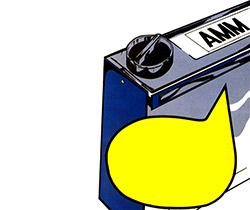
Perhaps the most iconic and "classic" of AMM albums, recorded at The Crypt in London in 1968 with AMM as the quartet of Cornelius Cardew on piano & cello, Lou Gare on saxophone and violin, Christopher Hobbs on percussion, Eddie Prevost on percussion, and Keith Rowe on guitar & electronics.
Out of Stock
Quantity in Basket: None
Log In to use our Wish List
Shipping Weight: 8.00 units
Sample The Album:
Cornelius Cardew-piano, cello
Lou Gare-saxophone, violin
Christopher Hobbs-percussion
Eddie Prevost-percussion
Keith Rowe-guitar, electronics
Click an artist name above to see in-stock items for that artist.
UPC: 902049200521
Label: Matchless
Catalog ID: MRCD05
Squidco Product Code: 1678
Format: 2 CDs
Condition: New
Released: 1992
Country: Great Britain
Packaging: Jewel tray, not sealed.
Recorded at The Crypt, Lancaster Road, London by Bob Woolford on June 12, 1968.
“The only possibility is to surrender to the ebb and flow of the pervasive group sound, until, finally you are lost inside it, mesmerised by it. You notice that the detail in the music is fascinating, no less the overall shape of the performance, which remains just out of grasp, like a landscape too powerful to assimilate in its entirety.”-Melody Maker (U.K.)
New 1992 double CD edition The Complete Session with material not released before.
"The music I want to hear at my funeral." - Gordon Alien
Artist Biographies
• Show Bio for Cornelius Cardew "Cornelius Cardew (7 May 1936 – 13 December 1981) was an English experimental music composer, and founder (with Howard Skempton and Michael Parsons) of the Scratch Orchestra, an experimental performing ensemble. He later rejected experimental music, explaining why he had "discontinued composing in an avantgarde idiom" in his own programme notes to his Piano Album 1973 in favour of a politically motivated "people's liberation music". Cardew was born in Winchcombe, Gloucestershire. He was the second of three sons whose parents were both artists—his father was the potter Michael Cardew. The family moved to Wenford Bridge Pottery Cornwall a few years after his birth where he was later accepted as a pupil by the Canterbury Cathedral School which had evacuated to the area during the war due to bombing. His musical career thus began as a chorister. From 1953 to 1957, Cardew studied piano, cello, and composition at the Royal Academy of Music in London. Having won a scholarship to study at the recently established Studio for Electronic Music in Cologne, Cardew served as an assistant to Karlheinz Stockhausen from 1958 to 1960. He was given the task of independently working out the composition plans for the German composer's score Carré, and Stockhausen noted: As a musician he was outstanding because he was not only a good pianist but also a good improviser and I hired him to become my assistant in the late 50s and he worked with me for over three years. I gave him work to do which I have never given to any other musician, which means to work with me on the score I was composing. He was one of the best examples that you can find among musicians because he was well informed about the latest theories of composition as well as being a performer. Most of Cardew's compositions from this period make use of the integral and total serialist languages pioneered by Boulez and Stockhausen. In 1959, Cardew performed in the first British performance of Pierre Boulez's Le marteau sans maĒtre at Dartington International Summer School of Music (having learnt to play the guitar for the occasion as no professional guitar player was available). Indeterminacy and the American experimentalists In 1958, Cardew witnessed a series of concerts in Cologne by John Cage and David Tudor which had a considerable influence on him, leading him to abandon post-Schönbergian serial composition and develop the indeterminate and experimental scores for which he is best known. He was particularly prominent in introducing the works of American experimental composers such as Morton Feldman, La Monte Young, Earle Brown, Christian Wolff, and Cage to an English audience during the early to mid sixties and came to have a considerable impact on the development of English music from the late sixties onwards. Cardew's most important scores from his experimental period are Treatise (1963–67), a 193-page graphic score which allows for considerable freedom of interpretation, and The Great Learning, a work in seven parts or "Paragraphs," based on translations of Confucius by Ezra Pound. The Great Learning instigated the formation of the Scratch Orchestra. During those years, he took a course in graphic design and he made his living as a graphic designer at Aldus Books in London. In 1966, Cardew joined the free improvisation group AMM as cellist and pianist. AMM had formed the previous year and included English jazz musicians Lou Gare, Eddie Prévost, Keith Rowe, and one of his first students at the Royal Academy Christopher Hobbs. Performing with the group allowed Cardew to explore music in a completely democratic environment, freely improvising without recourse to scores. While teaching an experimental music class at London's Morley College in 1968, Cardew, along with Howard Skempton and Michael Parsons formed the Scratch Orchestra, a large experimental ensemble, initially for the purposes of interpreting Cardew's The Great Learning. The Scratch Orchestra gave performances throughout Britain and elsewhere until its demise in 1972. It was during this period that the question of art for whom was hotly debated within the context of the Orchestra, which Cardew came to see as elitist despite its numerous attempts to make socially accessible music.Political involvements After the demise of the Orchestra, Cardew became more directly involved in left-wing politics and abandoned avant-garde music altogether, adopting a populist though post-romantic tonal style. He spent 1973 in West Berlin on an artist's grant from the City, where he was active in a campaign for a children's clinic. During the 1970s, he produced many songs, often drawing from traditional English folk music put at the service of lengthy Marxist-Maoist exhortations; representative examples are Smash the Social Contract and There Is Only One Lie, There Is Only One Truth. In 1974, he published a book entitled Stockhausen Serves Imperialism, which denounced, in Maoist self-critical style, his own involvement with Stockhausen and the Western avant-garde tradition. Cardew was active in various causes in British politics, such as the struggle against the revival of neo-Nazi groups in Britain, and subsequently was involved in the People's Liberation Music group with Laurie Scott Baker, John Marcangelo, Vicky Silva, Hugh Shrapnel, Keith Rowe and others. The group developed and performed music in support of various popular causes including benefits for striking miners and Northern Ireland. Cardew became a member of the Communist Party of England (Marxist-Leninist) in the 1970s, and in 1979 was a co-founder and member of the Central Committee of the Revolutionary Communist Party of Britain (Marxist-Leninist). His creative output from the demise of the Scratch Orchestra until his death reflected his political commitment. Cardew stated his attitude towards the avant-garde in Stockhausen Serves Imperialism: Cardew's efforts to politicise culture in Britain were influenced by his relationship with Hardial Bains, the Canadian communist leader and a leading anti-revisionist politician. Bains contributed the lyrics to Cardew's signature song from his later period, We Sing for the Future.Death Cardew died on 13 December 1981, the victim of a hit-and-run car accident near his London home in Leyton. The driver was never found. Musician John Tilbury, in his book Cornelius Cardew—A Life Unfinished suggests that the possibility that Cardew was killed because of his prominent Marxist-Leninist involvement "cannot be ruled out". Tilbury quotes a friend of Cardew's, John Maharg; "MI5 are quite ruthless; people don't realise it. And they kill pre-emptively". A 70th Birthday Anniversary Festival, including live music from all phases of Cardew's career and a symposium on his music, took place on 7 May 2006 at the Cecil Sharpe House in London." ^ Hide Bio for Cornelius Cardew • Show Bio for Lou Gare "Leslie Arthur "Lou" Gare (16 June 1939 - 6 October 2017) was a British free-jazz saxophonist born in Rugby, Warwickshire, England, perhaps best known for his works with the improvised music ensemble AMM and playing with musicians such as Eddie Prévost, Mike Westbrook, Cornelius Cardew, Keith Rowe and Sam Richards. " ^ Hide Bio for Lou Gare • Show Bio for Christopher Hobbs "Christopher Hobbs, a pioneer in the field of systemic music in Britain, was born in 1950. He studied with Cornelius Cardew at the Royal Academy of Music and was the youngest member of the Scratch Orchestra when it began in 1969. In that year he also joined the improvisation group AMM. In 1970 he, along with John White, Hugh Shrapnel and Alec Hill, formed the Promenade Theatre Orchestra. After its disbandment in 1973 he and White continued as a duo. A pianist and percussionist as well as a composer Hobbs has performed with a large number of individuals-Gavin Bryars, Michael Nyman, Steve Reich, John Tilbury, Christian Wolff among others-and has written music for a large variety of ensembles and situations. He taught music at The Drama Centre, London, from 1973-1991. Other teaching posts include guest lectureships at the University of Redlands, California and continuing lectureships at De Montfort and Coventry Universities. In 1968 he founded the Experimental Music Catalogue which was relaunched by Virginia Anderson and Hobbs in 2000. Since 2005 he has made over 130 pieces using GarageBand software and systemic procedures based on Sudoku grids. A double CD of this music was issued by EMC in December 2006. As well as his own music and that of his friends he has been particularly associated with the work of Erik Satie, giving a celebrated performance with Gavin Bryars of Vexations in 1971 and premiering the complete score to Le Fils des Etoiles, Satie's longest through-composed piece, in 1989. He has subsequently recorded the work twice and published a critical edition of the score through EMC. He has recently edited the works of Alec Hill." ^ Hide Bio for Christopher Hobbs • Show Bio for Eddie Prevost "Eddie Prévost (Edwin John) (born Hitchin, Hertfordshire, England, 22 June 1942) is an English percussionist noted for founding and participating in the AMM free improvisation group. Of Huguenot heritage, Prévost's silk weaving ancestors moved to Spitalfields in the late 17th century. Brought up by single parent mother (Lilian Elizabeth) in war-damaged London Borough of Bermondsey. He won a state scholarship to Addey and Stanhope Grammar School, Deptford, London, where to-be drummers Trevor Tomkins and Jon Hiseman also studied. Music tuition, however, was limited to singing and general classical music appreciation. Enrolled in the Boy Scouts Association (19th Bermondsey Troop) to join marching band. As a teenager began to get involved with the emerging youth culture music; skiffle, before being introduced to a big jazz record collection of a school friend with rich parents. With a bonus from the florist, for whom Prévost worked part-time after school, purchased his first snare drum from the famed Len Hunt drum shop in Archer Street (part of London's theatre land). After leaving school at sixteen Prévost was employed in various clerical positions whilst continuing his musical interests. Although, by now immersed in the music of bebop, his playing technique was insufficient for purpose. New Orleans style jazz ('trad') offered scope for his growing musical prowess. He played in various bands mostly in the East End of London. It was during a tenure with one of these bands he met trumpeter David Ware, who also shared a passion for the hard-bop jazz music. In their early twenties they later formed a modern jazz quintet which ultimately included Lou Gare, who had recently moved to London from Rugby and was a student at Ealing College of Art and a member of the Mike Westbrook Jazz Orchestra. AMM was co-founded in 1965 by Lou Gare, Eddie Prévost and Keith Rowe. They were shortly joined by Lawrence Sheaff. All had a jazz background. They were, however, soon augmented by composer Cornelius Cardew. Thereafter, Cardew, Gare, Prévost and Rowe remained as basis of the ensemble until the group fractured in 1972. Other more formally trained musicians were to enter the ranks of AMM after Cardew's departure. Those to make significant contributions were cellist Rohan de Saram and, in particular, pianist John Tilbury. The latter was a friend and early associate of Cardew and later became his biographer. In contrast to many other improvising ensembles, the core aesthetic of the ensemble is one of enquiry. There was no attempt to create a spontaneous music reflecting, or emulating, other forms. The AMM sound-world emerged from what Cardew referred to as "searching for sounds". For Prévost, the following would become the core formulation which he would explore during his subsequent musical career and explain and develop in various writings (see bibliography) and workshop activities. We are "searching" for sounds and for the responses that attach to them, rather than thinking them up, preparing them and producing them. In the 1980s, in response to various workshops and lectures, Prévost first formulated the twin analytical propositions of heurism and dialogue as defining concepts for an emergent musical philosophy, whilst acknowledging Cardew's construction (above). This line was explored and constantly redefined much through the London workshop experience, as his articles and his books show. (see below: The London Workshop). His 2011 book - The First Concert: an Adaptive Appraisal of a Meta Music - is described as a view "mediated through the developing critical discourse of adaptionism; a perspective grounded in Darwinian conceptions of human nature. Music herein is examined for its cognitive and generative qualities to see how our evolved biological and emergent cultural legacy reflects our needs and dreams. This survey visits ethnomusicology, folk music, jazz, contemporary music and "world music" as well as focusing upon various forms of improvisation - observing their effect upon human relations and aspirations. However, there are also analytical and ultimately positive suggestions towards future metamusical practices. These mirror and potentially meet the aspirations of a growing community who wish to engage with the world - with all its history and chance conditionals - by applying a free-will in making music that is creative and collegiate." (back cover of First Concert)History with AMM When, in the early 1970s, Cardew and Rowe began to devote their time and energy to espousing the political doctrine of an English Maoist party a fracture occurred in the ensemble leaving the rump of Lou Gare and Eddie Prévost, who continued in a duo form making various concerts and festival appearances and leaving a legacy of two recordings. At the end of the decade a rapprochement was attempted and for a short while the quartet began playing together again. It did not last. Lou Gare departed and moved from London to Devon. While Cardew's commitment to politics made his complete withdrawal inevitable. It was during this period Prévost took an Honours Degree at Hatfield Polytechnic, exploring and developing his interests in history(especially East Asian) and philosophy. Musically, this left Rowe and Prévost playing together. Their recording for German ECM label "It had been an ordinary enough day in Pueblo, Colorado" is the single example of their duet period. By the late 1970s a reawakened association with John Tilbury was cemented into his permanent place in AMM. He is featured on all subsequent AMM performances and recordings (as is Prévost). In 2002 a more lasting schism occurred leading to Rowe departing from AMM and leaving Tilbury to continue with Prévost.Percussion The investigative dynamic of AMM leads a musician to seek out new material. It is the fabric and constitution of stuff that is considered as more important than any historical or cultural heritage. It is Prévost's constant exploration's that has produced the range of sounds associated with his work, particularly within AMM and its extension to the many workshop ensembles. This philosophy leads to what Seymour Wright has so aptly described as the "awkward wealth" of investigation.(citation) It is a position of constant examination and artistic redress.Drumming Drumming with AMM was principally replaced by discreet percussion work which by and large relied on sound and texture rather than rhythm. At the time of the Gare/Prévost period this position was reviewed. However, it was plain the AMM aesthetic, characteristic of the early formative period, was to have its effect. The "searching" method prevailed. And, whereas a saxophone and drums duet led to a more jazz-like expectation (amplified by Gare's reversion to a more rolling and modal post-Rollins kind of approach). Prévost's playing was noted to have acquired some unusual qualities. This lead one reviewer (Melody Maker) to remark in 1972: "His free drumming flows superbly making use of his formidable technique. It's as though there has never been an Elvin Jones or Max Roach." Drumming however, was to take a back seat in Prévost's musical output as AMM developed and began to acquire and enhance its innovative reputation. And, apart from rare musical outings he did not commit himself, more fully, to the jazz drum kit again until 2007/08. Although, continuing to play percussion, a jazz-inflected project with Seymour Wright and Ross Lambert in an ensemble called SUM was the precursor of a period more devoted to drumming. Apart from various ad hoc ensembles, this led to various recordings including a series a CDs entitled Meetings with Remarkable Saxophonists. At date this consists of four volumes featuring Evan Parker, John Butcher, Jason Yarde and Bertrand Denzler respectively.The London workshop Over the years Prévost has conducted many improvised music workshops. However, as a result of a seminar he conducted at The Guelph Jazz Festival, Canada in 1999, Prévost began to formulate a framework for a workshop based upon a more thorough working of AMM principles and practice. He wrote: "I had, of course, already had long previous experience of improvisation and experimental music mostly through my participation in AMM and working closely with the composers Cornelius Cardew and Christian Wolff. From this experience I had begun a working hypothesis in my book 'No Sound is Innocent'. However, there is always more to discover. On my long flight across the Atlantic, I intuited more could be found out. Not through introspective, if rational, thought alone but, through discovery or experimentation: praxis. It can, of course, be very discomforting to watch a proposition die in practise. No theory is worth its salt unless it is fully tested. The best ideas - this experience suggests - emerge through activity. Hence, the working premise of the improvisation workshop had to be based upon an emergent set of criteria constantly tested within the cauldron of experience. In November 1999 I made it known that a free improvisation workshop would start weekly in a room at London's Community Music Centre, near London Bridge. Originally, under the auspices of the London Musicians' Collective, [...] these premises were found and minimal lines of communication to possible interested parties were opened. The first Friday evening (not thought to be an auspicious evening of the week because people 'went out' to have a good time) duly arrived. The room was available precisely because no one ever hired it on a Friday! I waited. Edwin Prévost, The First Concert: an Adaptive Appraisal of a Meta Music, (2011) p.115/6 Since then the workshop has continued weekly. It has a strong collegiate atmosphere. Those who participate are themselves formulating and refining a programme of enquiry and empathy. The working premise is one of 'searching for sounds' (Cardew). The emphasis is upon discovery and not on presentation. It is a place to risk failure and develop an open and continuing processive relationship with the materials at hand and other people. As hoped and anticipated, Prévost's continual presence is no longer required. In his occasional absences senior colleagues (in particular Seymour Wright and Ross Lambert) more than adequately move the project along. To date there have been over five hundred people who have attended the weekly workshop in London, representing over twenty different nationalities. This activity is further augmented by occasional forums for discussion and London's Cafe OTO programmes ensembles drawn from the London workshop every month. There have also been occasional extended periods of collective workshop musical experimentation. And, in 2010 there was a residential workshop held in Mwnci Studios on the Dolwillym Estate, west Wales. (see various other texts: including Philip Clark's Wire piece)] There are now workshops based upon this general premise functioning in Hungary, Greece, Slovenia, Japan, Brazil and Mexico. Mostly started by alumni of the original workshop in London.Intermediate and experimental compositions Cardew's 'Treatise' etc. Cardew's introduction to AMM in 1966 owes something to his search for musicians to perform his (then unfinished)193 pages long graphic score, 'Treatise'. The AMM musicians (at the time Lou Gare, Eddie Prévost, Keith Rowe and Lawrence Sheaff) seemed perfect candidates to embrace this bold work of imagination. And, with others (including later AMM member John Tilbury) all participated in the premier performance at the Commonwealth Institute on 8 April 1966 (check year!). But the initial impact of Cardew's induction into AMM was to bring a halt to his compositional aspirations. However, over the years since, AMM has had a long relationship with particular indeterminate and experimental works particularly those of Cardew - especially after his death in 1983. Most prominently 'Treatise'. Other favourites were 'Solo with Accompaniment', 'Autumn '60', Schooltime Compositions' and the text piece Cardew wrote particularly for AMM, 'The Tiger's Mind.' These pieces (which for a long time had been neglected within 'new' musical schedules), and occasionally others by Christian Wolff and John Cage, were sometimes played in conjunction with an AMM improvisation. Some concert promoters were, it seems, more interested in these pieces being played than the principal musical output of AMM. Hence, Prévost's ambivalence about the inclusion of such material in concert programmes. The creative search for primary performance material was diverted, in such works, in keeping with the demands of the notation or compositional scheme. This inevitably prevented the musician from (to use Cardew's own words) "being at the heart of the experiment". (Cardew, 'Towards an Ethic of Improvisation; CC R p. 127).Matchless Recordings and Publishing In 1979 Prévost began the recording imprint of Matchless Recordings and Publishing. Although there had been some interest by commercial labels to take on the new improvising music of the late 1960s onwards, it proved not to be satisfactory or long-lasting. Together with a number of similar initiatives, e.g. Incus Records in Britain and ICP (?) in the Netherlands, Prévost sought to take control of their own work. In the early years this was slow and painstaking work. Some years little was produced and few small sales accrued. Gradually however, Matchless recordings began to be the documenting and disseminating base for a developing body of work. Most of the AMM output is featured on Matchless and this has diversified (more so in recent years) to include other associated artists and ensembles.[see matchlessrecordings.com] In 1995, following the same principal for internal control over the output, production and dissemination of material, the publishing imprint Copula was inaugurated. The first publication was Prevost's No Sound is Innocent. Later followed by Minute Particulars in 2004. 2006 saw the publication of Cornelius Cardew: A Reader (edited by Prévost) which was a collection of Cardew's published writings accompanied by commentaries by a number of musicians associated and inspired by Cardew. This volume was an essential companion to John Tilbury's comprehensive biography Cornelius Cardew: a life unfinished which was also published by Copula in 2008. The most recent book to appear on this imprint is Prévost's The First Concert: An Adaptive Appraisal of a Meta Music (2011). Eddie Prévost is the cousin of the ex-docker shop-steward and left-wing political activist also named Eddie Prevost." ^ Hide Bio for Eddie Prevost • Show Bio for Keith Rowe "tabletop guitarist and painter. Rowe is a founding member of both the influential AMM in the mid-1960s (though in 2004 he quit that group for the second time) and M.I.M.E.O. Having trained as a visual artist, Rowe's paintings have been featured on most of his own albums. After years of obscurity, Rowe has achieved a level of relative notoriety, and since the late 1990s has kept up a busy recording and touring schedule. He is seen as a godfather of EAI (electroacoustic improvisation), with many of his recent recordings having been released by Erstwhile Records. Rowe began his career playing jazz in the early 1960s-notably with Mike Westbrook and Lou Gare. His early influences were guitarists like Wes Montgomery, Charlie Christian and Barney Kessel. Eventually, however, Rowe grew tired of what he considered the form's limitations. Rowe began experimenting, slowly and gradually. An important step was a New Year's resolution to stop tuning his guitar-much to Westbrook's displeasure. Rowe gradually expanded into free jazz and free improvisation, eventually abandoning conventional guitar technique. This change in his approach to guitar, Rowe reports, was partly inspired by a teacher in one of his painting courses who told him, "Rowe, you cannot paint a Caravaggio. Only Caravaggio can paint Caravaggio." Rowe reports that after considering this idea from a musical perspective, "trying to play guitar like Jim Hall seemed quite wrong." For several years Rowe contemplated how to reinvent his approach to the guitar, again finding inspiration in visual art, namely, American painter Jackson Pollock, who abandoned traditional painting methods to forge his own style. "How could I abandon the technique? Lay the guitar flat!" Rowe developed various prepared guitar techniques: placing the guitar flat on a table and manipulating the strings, body and pick-ups in unorthodox ways to produce sounds described as dark, brooding, compelling, expansive and alien. He has been known to employ objects such as a library card, rubber eraser, springs, hand-held electric fans, alligator clips, and common office supplies in playing the guitar. A January 1997 feature in Guitar Player magazine described a Rowe performance as "resemble a surgeon operating on a patient." Rowe sometimes incorporates live radio broadcasts into his performances, including shortwave radio and number stations (the guitar's pick-ups will also pick up radio signals, and broadcast them through the amplifier). AMM percussionist Eddie Prévost reports that Rowe has "an uncanny touch on the wireless switch", able to find radio broadcasts which seem to blend ideally with, or offer startling commentary on, the music. (Prévost, 18). On AMMMusic, towards the end of the cacophonous "Ailantus Glandolusa", a speaker announces via radio that "We cannot preserve the normal music." Prevost writes that during an AMM performance in Istanbul, Rowe located and integrated a radio broadcast of "the pious intonation of a male Turkish voice. AMM of course, had absolutely no idea what the material was. Later, it was complimented upon the judicious way that verses from The Koran had been introduced into the performance, and the respectful way they had been treated!" In reviewing World Turned Upside Down, critic Dan Hill writes, "Rowe has tuned his shortwave radio to some dramatically exotic gameshow and human voices spatter the mix, though at such low volume, they're unintelligible and abstracted. Rowe never overplays this device, a clear temptation with such a seductive technology - the awesome possibility of sonically reaching out across a world of voices requires experienced hands to avoid simple but ultimately short-term pleasure. This he does masterfully, mixing in random operatics and chance encounters with talkshow hosts to anchor the sound in humanity, amidst the abstraction." " Some accounts report that Rowe's guitar technique was an influence on Pink Floyd founder Syd Barrett: "Taking his cues from experimental guitarist Keith Rowe of AMM, Barrett strived to push his music farther and farther out into the zone of complete abstraction." Rowe has worked together with numerous composers and musicians, including Cornelius Cardew, Christian Wolff, Howard Skempton, Jeffrey Morgan, John Tilbury, Evan Parker, Taku Sugimoto, Otomo Yoshihide, Sachiko M, Oren Ambarchi, Christian Fennesz, Burkhard Beins, Kurt Liedwart, Toshimaru Nakamura, David Sylvian and Peter Rehberg. ^ Hide Bio for Keith Rowe
11/18/2024
Have a better biography or biography source? Please Contact Us so that we can update this biography.
11/18/2024
Have a better biography or biography source? Please Contact Us so that we can update this biography.
11/18/2024
Have a better biography or biography source? Please Contact Us so that we can update this biography.
11/18/2024
Have a better biography or biography source? Please Contact Us so that we can update this biography.
11/18/2024
Have a better biography or biography source? Please Contact Us so that we can update this biography.
Track Listing:
Disc 1:
1. Like A Cloud Hanging In The Sky? 45:31
Disc 1:
1. Coffin nor Shelf 45:42
2. Neither Bill nor Axe would Shorten its Existence 18:25
Matchless
Improvised Music
European Improv, Free Jazz & Related
Matchless
London & UK Improv & Related Scenes
Free Improvisation
Quintet Recordings
Before April-2006
Instant Rewards
Search for other titles on the label:
Matchless.


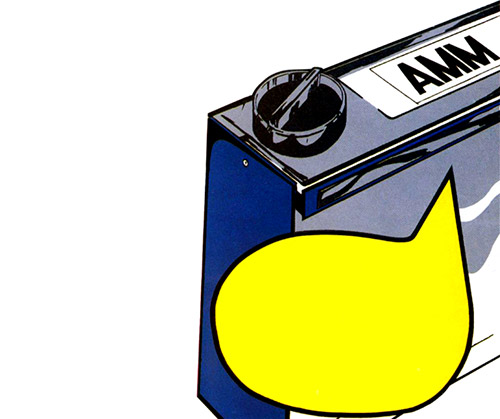

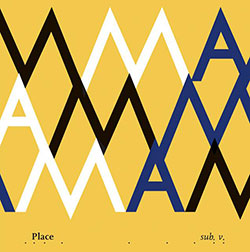


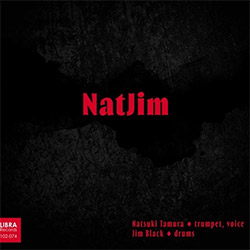

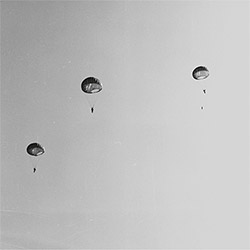
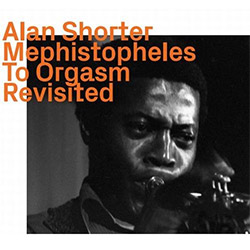

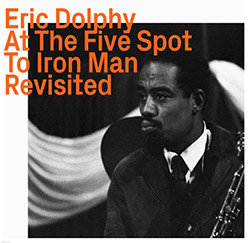


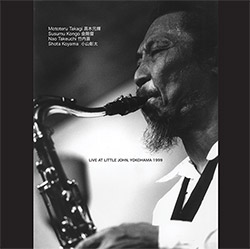
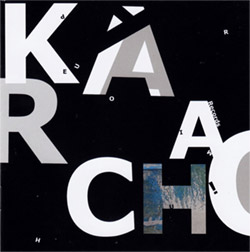

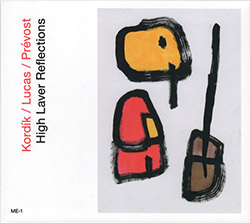
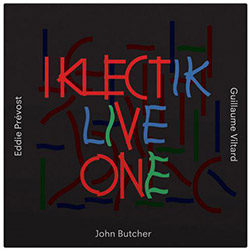
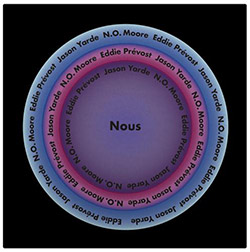


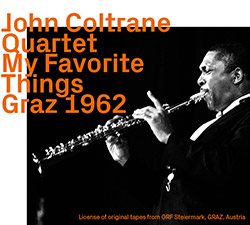



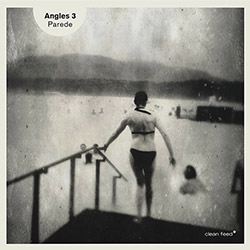















![Barker / Parker / Irabagon: Bakunawa [VINYL]](https://www.teuthida.com/productImages/misc4/35533.jpg)
![Blaser, Samuel / Marc Ducret / Peter Bruun: Dark Was The Night, Cold Was The Ground [VINYL 10-inch]](https://www.teuthida.com/productImages/misc4/35492.jpg)










![Warren, Kenny (Warren / Hoffman / Ellman): Sweet World [VINYL]](https://www.teuthida.com/productImages/misc4/35451.jpg)


![Blake, Ran / Dave Knife Fabris: Live Amsterdam 2006, First Visit [CD + POSTCARDS]](https://www.teuthida.com/productImages/misc4/35275.jpg)
![Sanna, Claudio: Compositori Sardi Contemporanei II [2 CDs]](https://www.teuthida.com/productImages/misc4/35317.jpg)











![Nevai, Nandor: <<The PRICE of FRONTIER>> Book 1: FULK [BOOK + 4 CDs]](https://www.teuthida.com/productImages/misc4/35464.jpg)
![Nevai, Nandor: <<The PRICE of FRONTIER>> Book 2: MARTIAL [BOOK + 4 CDs]](https://www.teuthida.com/productImages/misc4/35465.jpg)
![Nevai, Nandor: <<The PRICE of FRONTIER>> Book 3: JASSOM [BOOK + 4 CDs]](https://www.teuthida.com/productImages/misc4/35466.jpg)
![Nevai, Nandor: <<The PRICE of FRONTIER>> Book 4: HARD-WON [BOOK + 4 CDs]](https://www.teuthida.com/productImages/misc4/35467.jpg)






![DNS: Taking Big Bites Of The Khandas Three Cafes Deep [2 CDs]](https://www.teuthida.com/productImages/misc4/35334.jpg)




![Cleaver, Gerald: The Process [VINYL]](https://www.teuthida.com/productImages/misc4/34966.jpg)




![Alva Noto: HYbr:ID II [VINYL 2 LPs]](https://www.teuthida.com/productImages/misc4/35201.jpg)

![Baron, Derek / Luke Martin: Distinct and Concealed [CASSETTE + DOWNLOAD]](https://www.teuthida.com/productImages/misc4/35079.jpg)

![Lyle, Erica Dawn : Colonial Motels [CASSETTE + DOWNLOAD]](https://www.teuthida.com/productImages/misc4/35080.jpg)







![Alva Noto: HYbr:ID III [VINYL 2 LPs]](https://www.teuthida.com/productImages/misc4/35011.jpg)
![Kubisch, Christina / Trondheim Voices: Stromsanger 2022 For Six Voices And Electromagnetic Waves [VINYL]](https://www.teuthida.com/productImages/misc4/34628.jpg)








![Zurria, Manuel: Fame di Vento [3 CDs]](https://www.teuthida.com/productImages/misc4/35167.jpg)

![Granberg, Magnus / Nattens Inbrott / Skogen: Holde Traume, Kehret Wieder! [2 CDs]](https://www.teuthida.com/productImages/misc4/35038.jpg)
![Frey, Jurg: Outermost Melodie [2 CDs]](https://www.teuthida.com/productImages/misc4/35039.jpg)

![Pavone, Jessica: Reverse Bloom [VINYL]](https://www.teuthida.com/productImages/misc4/34895.jpg)




![Modney (Modney / Wooley / Gentile / Roberts / Pluta / Symthe / ...): Ascending Primes [2 CDs]](https://www.teuthida.com/productImages/misc4/34852.jpg)








![Elephant9 with Terje Rypdal: Catching Fire [VINYL 2 LPs]](https://www.teuthida.com/productImages/misc4/35355.jpg)
![Deerlady (Obomsawin, Mali / Magdalena Abrego): Greatest Hits [VINYL]](https://www.teuthida.com/productImages/misc4/34876.jpg)




![Haino, Keiji: Black Blues [2 CDs]](https://www.teuthida.com/productImages/misc4/35109.jpg)



![Surplus 1980: Illusion of Consistency [CD]](https://www.teuthida.com/productImages/misc4/35069.jpg)
![Staiano, Moe: Away Towards the Light [VINYL + DOWNLOAD]](https://www.teuthida.com/productImages/misc4/35037.jpg)




![Caveira (Gomes / Sousa / Abras / Ferrandini): Ficar Vivo [VINYL]](https://www.teuthida.com/productImages/misc4/34643.jpg)
![Gregg, J. J. / David Van Auken: Lunar Prairie [CD w/ DOWNLOAD]](https://www.teuthida.com/productImages/misc4/34611.jpg)

![Coultrain: Mundus [VINYL]](https://www.teuthida.com/productImages/misc4/32439.jpg)
![Mattin: Songbook #6 [VINYL]](https://www.teuthida.com/productImages/misc4/27317.jpg)
![Punkappella: Wake Up [7-inch VINYL]](https://www.teuthida.com/productImages/misc4/17519.jpg)
![Residents, The: WARNING: UNiNC.: Live And Experimental Recordings 1971-1972 [VINYL 2 LPs]](https://www.teuthida.com/productImages/misc4/31521.jpg)
![Coultrain: Phantasmagoria [VINYL]](https://www.teuthida.com/productImages/misc4/30142.jpg)
![Lennon, Sean Ono: Asterisms [VINYL]](https://www.teuthida.com/productImages/misc4/34517.jpg)

![Rotem Geffen: The Night Is The Night [VINYL]](https://www.teuthida.com/productImages/misc4/34631.jpg)
![Coley, Byron: Dating Tips for Touring Bands [VINYL]](https://www.teuthida.com/productImages/misc4/17906.jpg)

![Lost Kisses: My Life is Sad & Funny [DVD]](https://www.teuthida.com/productImages/misc4/lostKissesDVD.jpg)